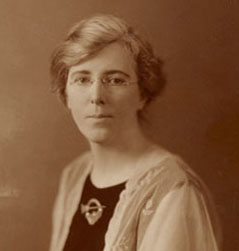
The new documentary “Votaí do Mhná” explores connections between the women’s suffrage movement and the Irish independence struggle. But excuse me . . . You missed a spot
As we wade into Ireland’s commemorative decade 2013 – 2023, it’s refreshing to see more of something TG4 does best: historical documentaries about this tumultuous period.
1913 – 1923 was a time of intense ferment, all over the world, on all fronts: political, cultural, social. Yet it’s sometimes less appreciated now, than the overpowering 30s, 40s, 50s & 60s which tumbled in on its heels.
Women’s suffrage and Irish independence
A powerful women’s movement played a central role in the general unrest. Women’s fight for the right to vote raised profound questions about gender roles, at the very heart of society. Those rigid roles were being aggressively assailed by highly competent women everywhere, opening more professions to females than ever before.
As noted in this must-see documentary, the 1916 Proclamation’s opening salutation to “Irish men and Irish women” was a milestone. It was perhaps the first instance of explicitly gender-inclusive language, in a major political manifesto of its kind. While a credit to the organizers & authors, it was also a sign of the times: anyone hoping to succeed at organizing progressive forces, had to show solidarity on women’s issues.
This is the political environment which produced Michael Collins. It was his home town. Having grown up on a farm, where his widowed mother handled much of the work, and most of the management, he didn’t need anyone to explain the concept of gender equality.
After the revolution
Yet what happened after independence, . . . proved problematic; for women of the struggle, as well as for Collins. “Votaí do Mhná” reviews how women fared in the new state: whether those who’d fought for freedom, those with the talent, experience and ideas, got equal opportunity and equal voice in re-shaping Irish society.
There are many examples of the tragic waste, even stifling, of such talent, by what became the Dublin establishment. Not all of them are detailed in this documentary.
Kathleen Clarke
However, it errs in one reference to Kathleen Clarke, widow of Thomas Clarke, first signatory to the Proclamation. One commentator declares that Mrs. Clarke was kept out of public office, by “the machinations of Michael Collins.”
Mrs. Clarke was hardly kept out of office by anyone. She served the public, in a long and illustrious career, on Dublin Corporation Council, on numerous municipal boards and hospital boards. In the first republican courts, during the War of Independence, she served as a judge; and played a leading role in the formation of Ireland’s court system; for which she was ultimately awarded an honorary Doctorate of Law by the National University of Ireland. She held office as a Senator, as a TD, and was the first woman Lord Mayor of Dublin.
In her memoires, she certainly gives some fascinating accounts of “machinations” which at times seemed aimed at obstructing her political role. Michael Collins is nowhere mentioned by her in connection with them. She does name Harry Boland, Richard Mulcahy, and E DeValera in some of these instances.
Kathleen Clarke and Michael Collins
Collins was in fact Mrs. Clarke’s chosen protegé. It was she who invested him, in a sense, with Tom Clarke’s mantle: She appointed him to take charge of re-organizing the Volunteers, after the Rising. Speaking of her first interview with him, shortly after his post-Rising release, she wrote: “I decided he was just the man I had been hoping for … and also reminded me in many ways of Sean MacDermott. … With his forceful personality, his wonderful magnetism and his organising ability … ”
She goes on to explain that the secret “database” (so to speak) of the Rising, which had been placed in her keeping by Tom Clarke, was then entrusted by her to Collins. “He agreed with my idea that the fight for freedom must be continued, the Rising to count as the first blow.”
I can find in Mrs. Clarke’s work no expression of resentment nor of any moral disapprobation toward Collins; even after the Treaty controversy placed them on opposite sides. On the contrary, speaking at a meeting of anti-Treaty supporters, she was dismayed when some in the audience hissed when his name was mentioned. “This shocked me, and I stopped and said, ‘I do not like that. … I did not agree with him on the question of the Treaty but … No, Mick Collins was no traitor” **
(** Quotations are from “Revolutionary Woman” by Kathleen Clarke)
 Find further incisive analysis
Find further incisive analysis
of this historical period in:
The Assassination
of Michael Collins
(What Happened At Béal na mBláth?)
by S M Sigerson
Paperback or Kindle edition here:
www.amazon.com/dp/1493784714
All other e-reader formats:
www.smashwords.com/books/view/433954
Read reviews:
http://www.rabidreaders.com/2014/12/03/assassination-michael-collins-s-m-sigerson-2/
Or ask at your local book shop

Revolutionary Woman
the autobiography of Kathleen Clarke:
www.obrien.ie/kathleen-clarke

No Ordinary Women
(Irish Female Activists in the
Revolutionary Years 1900 – 1923)
by Sinead McCoole
https://www.obrien.ie/no-ordinary-women







